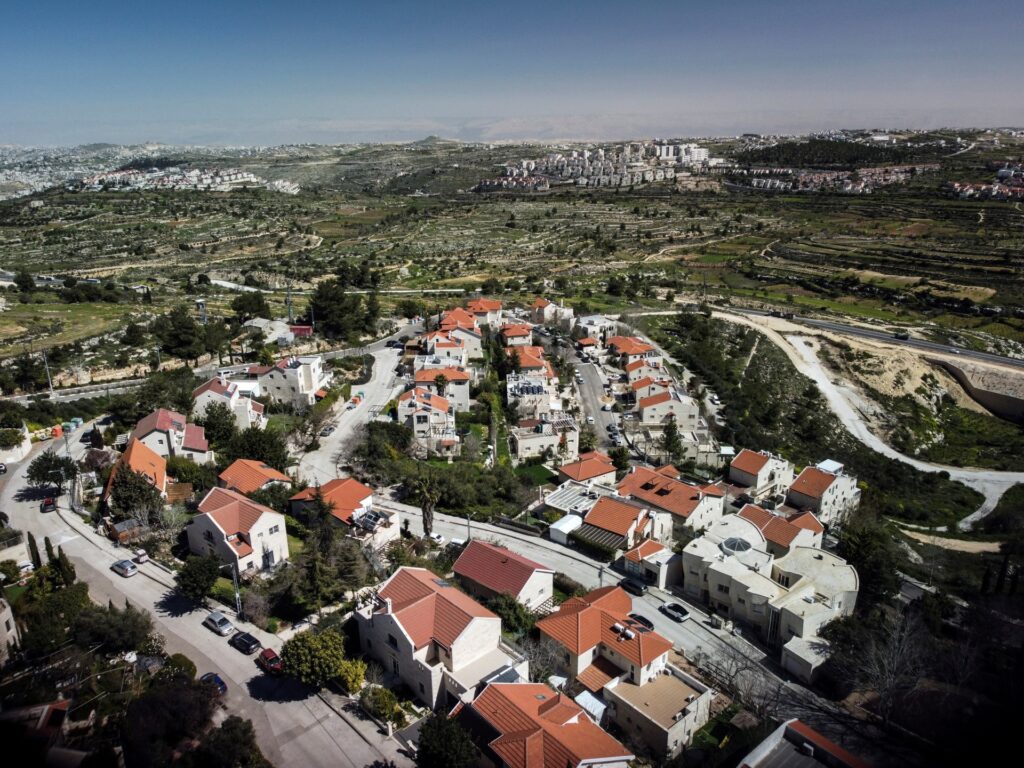The Jerusalem Post newspaper published an article by an Israeli journalist and activist known for his positions hostile to the United Nations Relief and Works Agency for Palestinian Refugees (UNRWA), in which he addressed what he called dilemmas raised by the idea of establishing an independent Palestinian state.
Although the author of the article, David Badeen, confirms that the idea of a two-state solution will be at the top of the agenda of the new American administration, after Saudi Arabia’s demand for a Palestinian state as a condition for its relations with Israel, he claims that without that there are 10 dilemmas that he listed in detail, and followed them with 10 questions that he said policymakers in the Middle East They often forget to bring it up.
Badin is a journalist and activist who supervises the Near East Center for Policy Research, based in occupied Jerusalem, which is a non-governmental organization known for its positions against the United Nations Relief and Works Agency for Palestine Refugees (UNRWA).
His presentation of the ten dilemmas came in the form of questions through which he claims that the establishment of a Palestinian state raises them, and they are as follows:
1- Encirclement: Will the proposed State of Palestine swallow up Jordan, whose population is mostly Palestinians, putting Israel in a confrontation with a hostile state extending from the Iraqi border to the Mediterranean Sea, with a corridor through the Negev Desert between Gaza and Hebron?
2- Israeli Arabs: Will the Arabs of the Galilee and Negev demand joining the Palestinian Arab state and then demand the implementation of United Nations Resolution No. 181 stipulating Israel’s withdrawal to the 1947 borders?
3- TerrorismWill the new Palestinian Arab entity dissolve terrorist organizations?
4- Armament: What is the reason to expect that Palestine will be a sovereign, demilitarized state, as long as all nation states maintain an armed force as an integral part of their new state?
5- Refugees: How will Israel deal with the expectations of Arab countries and “UNRWA residents” who are still demanding that Israel absorb the descendants of Arab refugees and thus displace thousands of Israelis from places such as Haifa, Safed, Jaffa and 80 kibutzas located on the property of Arab villages whose residents left in 1948?
6- Airspace: Will the Israeli Air Force be prevented from flying over a new Palestinian Arab state?
7- Alliances: What prevents the Palestinian state from concluding military deals with countries that are still at war with Israel?
8- Water: Is there anything preventing the sovereign State of Palestine from drilling and prospecting for mountainous groundwater in the West Bank?
9- Jewish sovereignty:Won’t the momentum of a Palestinian Arab state erase the right of the Jews to the Land of Israel, and thus, erase it from the conscience of the world?
10- Loss of independence: With the establishment of Palestine, will this not make Israel subject to the sponsors of the new Arab state, which is the Quartet, which includes the United States, the European Union, the United Nations, and Russia?
Badin concluded that these dilemmas require policymakers in the Middle East to raise them regarding the Palestinian state.
In light of this, he wonders whether these policymakers should demand that the Palestinians publicly recognize the Jewishness of the State of Israel, and whether they will call on them to finally ratify the Declaration of Principles for Peace signed at the White House in 1993, and to abolish the Palestine Liberation Organization Charter and the law that guarantees all A Palestinian kills a Jew with a salary for life.
Another question that he believes Middle East policymakers should ask is whether they will demand the abolition of the new curricula developed by the Palestinian Authority and UNRWA that are based on jihad, martyrdom, and the right of return by force of arms.
In addition to questions such as whether they will demand – allegedly – the withdrawal of weapons from the schools of the Palestinian Authority and UNRWA, and whether they will pressure UNRWA to dismiss its employees who the writer claims are affiliated with the Hamas, Islamic Jihad or Fatah movements.
David Badin continued asking questions that he suggests policymakers should ask, including: Will they demand an audit of donor funds from 68 countries to the Palestinian Authority and UNRWA? Will they appeal to the United States to stop its support for the Palestinian security services?

